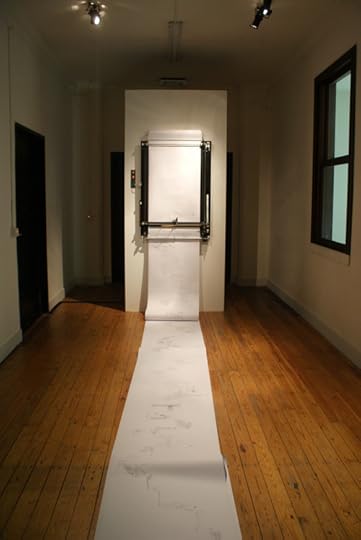Who Are You, and What Do You Write?

Here at NaNoWriMo, we believe in writing in all its forms—all the better if it’s available for the world to see. That’s the same idea being celebrated during tomorrow’s National Day on Writing. Writers around the world are encouraged to share their scribblings (of any sort) with the hashtag #WhatIWrite today.
Tell a new acquaintance that you’re a writer, and the immediate follow-up is typically “Oh, what do you write?” (Occasionally, you get sympathy eyes, and then a swift change in subject. This is sometimes a relief.)
It’s a tough question to answer, in part because it’s vague. They could be wondering whether you’re a journalist, or a novelist, or a conspiracy theorist who scratches out plots in a little black book wrapped in tin foil. They could be wondering if you write short stories, or science fiction, or epic poetry. They could be making awkward first-date talk and desperately hoping you won’t go into too much detail about the fictional planet you’ve created for your space opera. It’s hard to know.
The truth is that it’s a question that asks you to bare your creative soul, that can have deep roots in the history of your life. Reflecting on what you write isn’t so different from reflecting on who you are.
There might be moments where you read short stories your mom wrote as a student, and realize, ‘Hey, that habit of writing the same thing redundantly in three consecutive, only-slightly-different sentences is something she did, too.” You might realize that your voice when you write in your native language is different from the one you use when you’re writing in another. That every novel you’ve ever written has a character from Arizona who was raised by a single dad, and who turns out to be a whiz with a soldering iron and nunchakus.
The actual process of writing and publishing a novel can be a marathon. Rewrites are involved, editorial voices, concerns about market-trends. But the novels you write every November, riddled with plot holes, grammatical errors, and character inconsistencies as they might be, are a pure distillation of who you are as a writer in that moment. It’s the stuff you write at four in the morning when you know you should go to bed but the idea-monster in your head is champing at the bit, red-eyed and furious for more; more writing!
It’s your authorial voice when your outlines suddenly bottom out and you go on for a page and a half typing things like, “And then they all died unspeakable deaths because they had no idea how to stop the suddenly-sped-up expansion of the universe without resorting to a deus ex machina. Pretty sad stuff. Lots of people cried.”
The ideas that inspire your 2012 novel are this year’s ideas. The ones that inspired your 2009 novel, were those of your three-years-ago self. Even if publishing isn’t right for you, your manuscripts aren’t just novels, they’re time capsules.
People know you through your stories. You come home and tell your loved one about your day. You go to work in the morning and tell your co-workers about what you did over the weekend. You write status updates, and tweets; post GIF collections on Tumblr, and pick the perfect Instagram filter for that photo of you chomping into the biggest burger known to man. We define ourselves by our stories, whether we tell them through words or pictures.
You happen to do it, once a year, in a novel. What are you writing this year?
Photo by Flickr user Marc Wathieu.
Chris Baty's Blog
- Chris Baty's profile
- 63 followers



